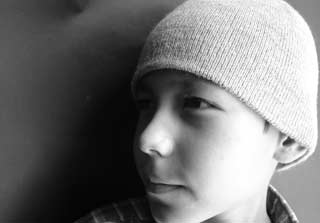Confidentiality and Parent(s)’ Right to Know
 This article is part 2 of “If I told you about me, would you…Psychotherapy and Confidentiality”
This article is part 2 of “If I told you about me, would you…Psychotherapy and Confidentiality”
Parents bring their child(ren) to therapy in the hopes that in doing so they would learn what their child(ren) are doing and thinking. In a way, making the psychotherapist a pseudo-spy for the parents. This approach to therapy, however, may end up being more detrimental to the child and the family than it can be helpful. This article briefly discusses the legalities of the child’s right to confidentiality and the parent(s)’s need to know, and my own way of dealing with the same.
Confidentiality and Parent(s)’ Right to Know
Family Code section 6924 allows for a child 12 years and over to consent for his or her mental health services if the psychotherapist, whether licensed or registered intern, deems that the child is “mature enough to participate intelligently in the outpatient services or residential shelter services.” (Family Code section 6924(b)(1).) To be admitted without the parent(s)’s or guardian(s)’ consent, however, requires at least one of two criterias to be met: (a) that the minor presents a danger to self or to others; or (b) is the “alleged” victim of an incest or child abuse. (Family Code section 6924(b)(2)(a) and (b).) Where a minor aged 12 years and above is admitted for psychotherapy services, the psychotherapist must take necessary efforts to inform the parents or guardians unless “the involvement would be inappropriate.” (Family Code section 6924(d)(2).)
Because California recognizes a child over the age of 12 as possibly (as deemed by the psychotherapist) having the capacity to consent for mental health services, an argument arises whether the right to confidentiality extends to the child as well.
California Health and Safety Code Section 123115 affirms a child’s right to confidentiality under two conditions:
{pullquote}Children, at some point (often during teen years), will begin to assert an identity separate and distinct from their parents. A power struggle often ensues between the child and the parents over the child’s attempts to claim a right to privacy and the parents’ right to know. In psychotherapy, if the child knew that everything said in therapy would be relayed back to the parents, the psychotherapist-client trust may be compromised and psychotherapy may lose its effectiveness in helping the child or the family.{/pullquote}”(a) The representative of a minor shall not be entitled to inspect or obtain copies of the minor’s patient records in either of the following circumstances:
(1) With respect to which the minor has a right of inspection under Section 123110.
(2) Where the health care provider determines that access to the patient records requested by the representative would have a detrimental effect on the provider’s professional relationship with the minor patient or the minor’s physical safety or psychological well-being. The decision of the health care provider as to whether or not a minor’s records are available for inspection or copying under this section shall not attach any liability to the provider, unless the decision is found to be in bad faith.”
Regarding the confidentiality of a child receiving mental health services and the parents’ right to know, the operative language is the underlined words in paragraph (a)(2) of California Health and Safety Code 123115. It is broad and gives the psychotherapist a lot of power.
In my own dealings with child clients and their parents, I attempt to make this point clear to both parents and child clients. I explain that a great part of what has made the parents bring the child to seek help is that there is a trust issue between the child and adults as represented by the parents. If the child knew that everything said in therapy would then be relayed back to the parents, the trust will not be there and I, as a psychotherapist, will not be effective in helping the child or the family. Thus, although the parents would wish to learn of what their child says in session, the benefit of their knowing may be outweighed by the losing their child’s participation in therapy.
Within the same breath, however, I explain to both the child and parents that there is limitation of confidentiality. Specifically, when there is reason to believe that the child may be in danger (e.g., abuse), the child is a danger to self or others (suicidal or homicidal ideations), or the child is committing child abuse or elderly abuse.
Oftentimes, both parents and child agree that the child’s right to confidentiality will be respected and that such confidentiality has its limitations. I further get all parties to commit to regular family sessions where each concerns can be expressed.
Limitations to Confidentiality
However, the right to confidentiality is not without its limitations. HIPAA-specified service providers, in our case Marriage and Family Therapists, and California Business and Professions Code § 4982 in its conditional statement “except as otherwise required or permitted by law,” allow for psychotherapists to break a client’s confidentiality when:
- there is need for professionals (e.g., doctors to psychotherapists and vice versa) to communicate with each other and that communication is necessary to aid in the treatment of the patient/client;
- a client poses a threat to self or others; and
- there is the possibility of past, present or future child or elder abuse.